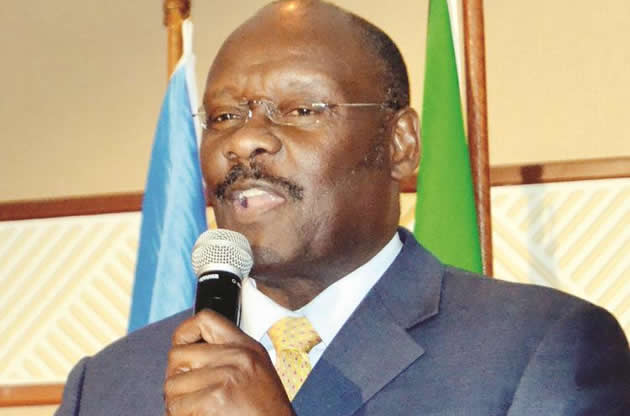
The Sunday News

Robin Muchetu Senior Reporter
SADC countries have praised the use of trans-border clinics available throughout the region in a bid to increase HIV, TB and Malaria prevention in most-at-risk populations.
Addressing journalists at a Press conference held after the Sadc Ministers of Health and Ministers responsible for HIV and TB conference in Victoria Falls recently, Sadc secretariat representative Mr Stephen Sianga, who is the director of Social Human Development and Special Programmes, said the clinics were already operational.
“More than half of the trans-border clinics are operational in the Sadc region and it is a good thing as people are actually making use of them. We have a total of 32 clinics at the moment,” said Mr Sianga.
He said the intention was to then ensure that the remaining clinics be opened and service the people effectively.
The trans-border clinics are targeted at cross border traders, long distance truck drivers, communities around border towns and also sex workers as they are seriously affected by the Aids pandemic.
The clinics are located at entry points of countries.
The Minister of Health in South Africa, Dr Aaron Motsoaledi, said the one clinic at Musina Town in Limpopo Province in South Africa services Zimbabweans, South Africans and other nationals that pass through the area.
“We are targeting the truck drivers and cross border traders considering that they are always on the move and they do not necessarily have their partners with them always,” he said.
The remaining clinics or Wellness Centres that will be rolled out to the rest of the region in the next two years will provide basic health services and also major in HIV prevention, testing and counselling. They also have on offer Sexually Transmitted Infections (STI) treatment and condom distribution too.
Initially, these clinics were funded by the Global Fund but they have since been taken up by the individual countries that then maintain and run them.
The Sadc representative noted that the trans-border clinics were not intended to replace or compete with country-specific national strategies, but they aim to improve the coherence and effectiveness of the regional response to HIV by reducing the number of infections.
Through a focused approach to health service delivery the clinics are expected to contribute to mitigating the impact of Aids on mobile populations and affected communities in the region.
The countries that are benefiting from the project include Angola, Botswana, the Democratic Republic of Congo (DRC), Lesotho, Malawi, Mozambique, Namibia, South Africa, Swaziland, Tanzania, Zambia and Zimbabwe.
The project will enable the gathering of statistical information and data on HIV and STI incidence, and track trends and emerging disease patterns across the region for research purposes.
The Minister of Health and Child Care, Dr David Parirenyatwa, who is also the chairperson to the Sadc Ministers of Health and Ministers responsible for HIV and TB, said as a region they will ensure that the targeted people were reached.
“We have our main focus on the long distance truck drivers; we want to manage them in a way that there is no spread of HIV in this group of people. It has also emerged that the highest level of HIV prevalence in the Sadc is among the truck drivers and also with the commercial sex workers,” said Dr Parirenyatwa.
The programme was initiated after it was found that increased cross-border movement in the region increases the risk of HIV infection not just among high risk groups such as sex-workers and long-distance truck drivers, but also among migrant populations, communities close to border sites, and communities with high levels of in and out migration.
Young working age adults are at particular risk, given that they make up the largest portion of mobile populations, as are young women involved in periodic transactional sex.
Health Ministers said they want their nationals together with other populations in transit to be able to access HIV and TB health care no matter which Sadc country they come from.



